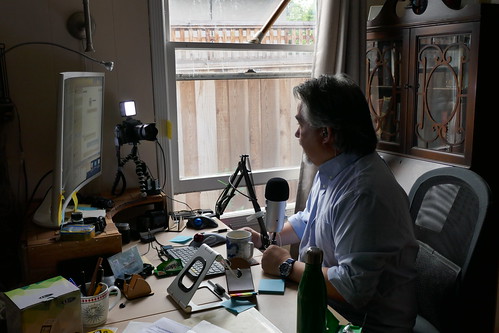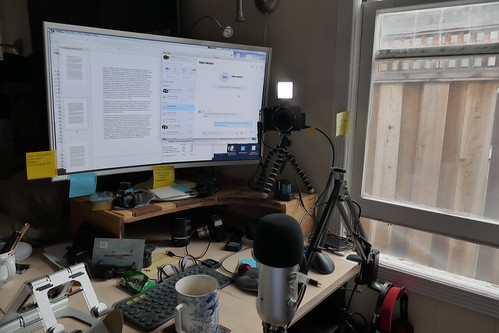This morning I was on BBC World, talking about the 4-day week and post-pandemic work.
It was like a studio setup: I was looking at the camera, but I couldn’t see the presenter or any of the other guests, though of course I could hear what was going on. It’s a bit disconcerting, but in this situation you have look at the camera, listen very carefully, and engage as best you can.
This is what it looked like behind the scenes (and yes, I know my desk is a tip):
When the lockdown started and it became clear that I was going to do a lot of book promotion stuff remotely rather than in person, I brought an Elgato Cam Link, which lets you connect a digital camera (I have a Fuji X-T3) to your computer and use it as a webcam. (It seems to be mainly for Twitch streamers.) I then added an external battery for the camera (it’s USB powered, and you don’t have to worry about running down the battery during a long interview) and an inexpensive battery-powered light.
Add a tripod and you can adjust the height and distance, which means you can frame shots much more precisely than with a laptop webcam, and look a lot better. Of course, the Fuji is a fairly serious serious piece of technology, but even if you have a $200 point-and-shoot, with the better lens and a little attention to your lighting and camera positioning, you’ll look ah-may-zing.
It’s been very gratifying in the last week or so to see interest in the 4-day week pick up: between my article in The Atlantic, and much more importantly the positive press from Jacinda Ardern, Nicola Sturgeon, Andrew Yang, and others, there’s really been a lot of discussion about using the reopening as a chance to experiment with new ways of working.



